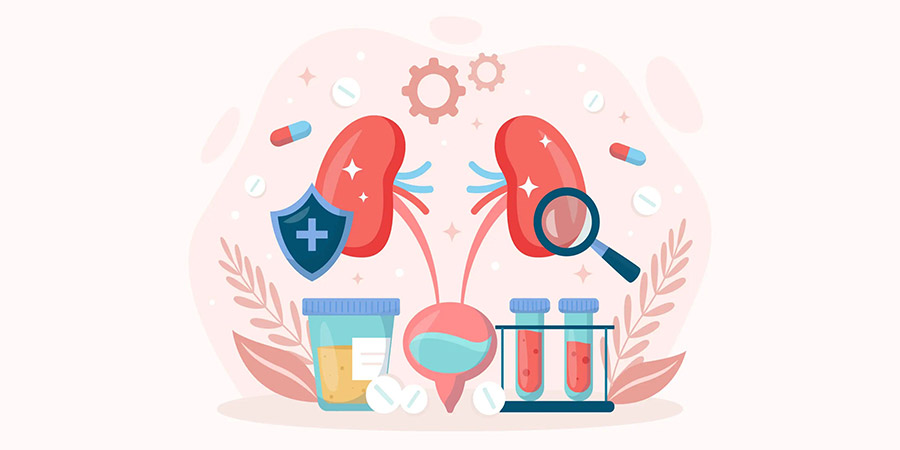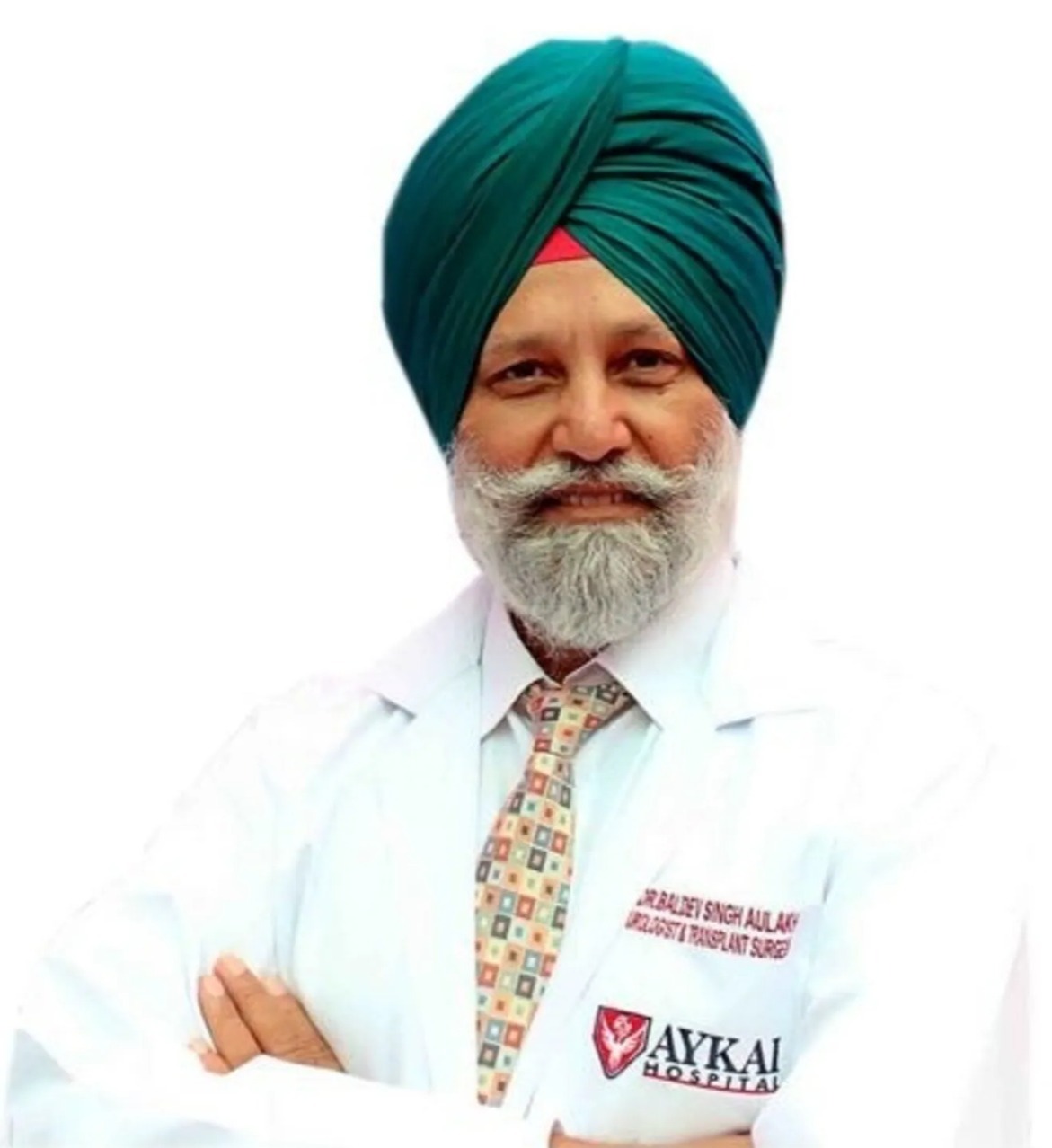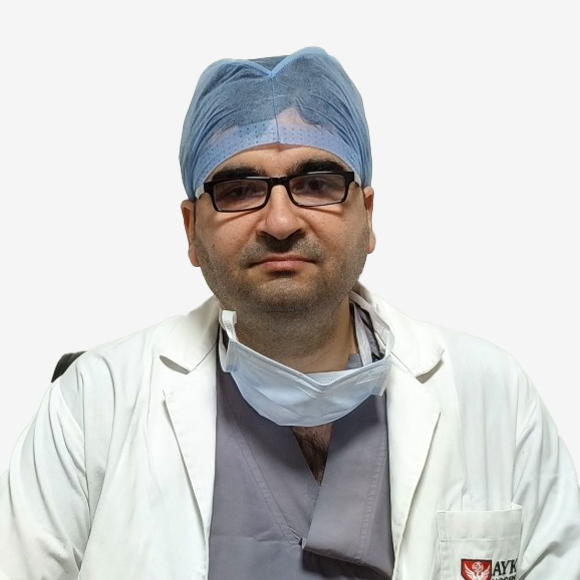Nephrology
- Home
- Specialities
- Nephrology

Overview
Aykai’s nephrology team is highly accomplished, experienced, and well-trained. We offer comprehensive kidney care, including kidney biopsy, SLED, plasmapheresis, vascular access, hemodialysis, peritoneal dialysis, and kidney transplant. Supported by advanced diagnostics, world-class infrastructure, state-of-the-art machines, and the latest equipment, our team ensures precise treatments and optimal patient outcomes.
Introduction to Aykai Hospital’s nephrology department.
Aykai Hospital is a leading kidney specialist hospital in Ludhiana, offering advanced nephrology care. Our Nephrology Department is equipped with state-of-the-art technology and an experienced team of nephrologists in Ludhiana. We specialize in diagnosing and treating a wide range of kidney-related conditions, ensuring comprehensive nephrology treatment for patients.
Common Nephrology Diseases We Treat
At Aykai Hospital, our kidney specialists provide expert care for various kidney diseases, including:
- Kidney failure – Acute and chronic renal failure management
- Nephrotic Syndrome – Excessive protein loss in urine
- Diabetes-Related Nephropathy – Kidney damage due to diabetes
- Glomerulonephritis – Damage to kidney’s filtering units
Our team of kidney specialist doctors ensures accurate diagnosis and personalized treatment plans for each patient.
Why Choose Aykai Hospital for Nephrology in Ludhiana?
As a premier kidney specialist hospital in Ludhiana, we offer:
- Highly qualified nephrology doctors with vast experience
- Advanced dialysis and transplant services
- Comprehensive care for kidney-related ailments
- Latest diagnostic tools for early detection
Our kidney hospital is committed to delivering top-tier treatment for all nephrological disorders.
Explore Our Nephrological Care Features
Our Nephrology Department provides specialized services, including:
- Kidney Biopsy for accurate diagnosis
- Hemodialysis & Peritoneal Dialysis for kidney failure management
- Vascular Access Procedures for dialysis patients
- Plasmapheresis & SLED Therapy for critical cases
With a team of leading nephrologists in Ludhiana, we ensure the best possible outcomes for our patients.
Meet Our Expert Nephrology Team in Ludhiana
At Aykai Hospital, our team of kidney specialists and nephrology doctors provide compassionate care and advanced treatment options. We take pride in being a trusted kidney hospital with a dedicated team of Kidney Doctors and specialists.
If you’re looking for the best kidney specialist doctor in Ludhiana, Aykai Hospital is here to help. Our expert Kidney Doctors provide world-class care to ensure optimal kidney health. Schedule a consultation with our nephrologists in Ludhiana today and receive the best nephrology treatment tailored to your needs.
Meet Our Expert Nephrology Team in Ludhiana
What does a kidney specialist do?
A kidney specialist (nephrologist) diagnoses and treats kidney diseases and related conditions. They manage chronic kidney disease (CKD), kidney failure, kidney infections, and high blood pressure affecting the kidneys. Nephrologists also oversee dialysis treatments and kidney transplants. They help prevent kidney damage through lifestyle and medication management. Regular check-ups with a specialist can slow disease progression.
When should I see a kidney specialist?
You should see a nephrologist if you experience persistent swelling, high blood pressure, blood in urine, or changes in urination. Those with diabetes, heart disease, or a family history of kidney disease should have regular screenings. Chronic fatigue, difficulty concentrating, and muscle cramps may indicate kidney problems. Early consultation helps prevent complications and improves treatment outcomes.
What treatments are available for kidney failure?
Kidney failure is managed through dialysis (hemodialysis or peritoneal dialysis) or kidney transplantation. Medications help control symptoms and slow disease progression. Lifestyle changes, including a kidney-friendly diet and fluid management, are crucial. In some cases, treating underlying conditions like diabetes or high blood pressure can improve kidney function. A nephrologist determines the best treatment based on the patient’s condition
Why choose Aykai Hospital for nephrology in Ludhiana?
Aykai Hospital provides expert nephrology care with advanced diagnostic and treatment facilities. The hospital offers dialysis, kidney transplant services, and comprehensive management of kidney diseases. Experienced nephrologists ensure personalized treatment plans for each patient. It is equipped with modern technology for effective kidney care. The hospital is known for high-quality nephrology treatments in Ludhiana
Nephrology Diseases
Kidney failure
Kidney failure (renal failure) means one or both of your kidneys no longer function well on their own. Kidney failure is sometimes temporary and develops quickly (acute). Other times it’s a chronic (long-term) condition that slowly gets worse.
Nephrotic Syndrome
Nephrotic (neff-rot-ick) syndrome is a condition in which your kidneys release an excessive amount of protein (proteinuria) in your urine (pee).
Diabetes-Related Nephropathy
Diabetes-related nephropathy is a condition that affects your kidneys. Another name for diabetes-related nephropathy is diabetes-related kidney disease (DKD).
Glomerulonephritis
Glomerulonephritis is a type of kidney disease. It involves damage to the glomeruli (tiny filters) inside your kidneys. If you have glomerulonephritis, your kidneys can have trouble removing waste and fluid from your body. Many mild cases resolve with treatment. If the condition becomes severe, it can lead to kidney failure.
Explore our nephrological care features
Nephrological Disorders
- Nephrological disorders affect the kidneys, responsible for filtering waste and regulating fluids.
- Common conditions include chronic kidney disease (CKD), kidney stones, glomerulonephritis, and polycystic kidney disease.
- Risk factors include diabetes, hypertension, genetic predispositions, and infections.
- Symptoms can range from swelling, fatigue, changes in urination, to high blood pressure.
- Early diagnosis through tests like urine analysis, blood tests, and imaging is crucial.
- Treatments include lifestyle changes, medications, dialysis, and in severe cases, kidney transplants.
- Regular monitoring and management can help prevent further kidney damage.
Test and Treatment
- Lifestyle Changes: Diet modification, increased water intake, weight management, and smoking cessation.
- Medications: Control blood pressure, manage blood sugar, and reduce protein loss in urine.
- Dialysis: Hemodialysis or peritoneal dialysis for kidney failure to filter waste from blood.
- Kidney Transplant: Surgical procedure for end-stage kidney disease, replacing the diseased kidney with a healthy donor kidney.
- Surgical Procedures: For kidney stones, obstructions, or in cases of structural abnormalities.
- Immunosuppressive Therapy: For conditions like glomerulonephritis and autoimmune-related kidney disorders.
- Monitoring: Regular blood tests, urine analysis, and imaging for disease progression.
Clinical Team

Dr. Baldeev Singh Aulakh
Urologist, Laparoscopic, Robotic and Transplant Surgeon

Dr. Amit Tuli
(Urologist and Andrologist)

Dr. Vivekanand Jha
(Nephrologist)

Dr. Naresh
(Urologist)

Dr. Gaurav
(Urologist)

Dr. Himanshu
(Urologist)

Dr. Pranav Arora
(Anesthesia)
Are you having health problems? Contact us today!
Call Us 24/7: 0161-525 25 25

